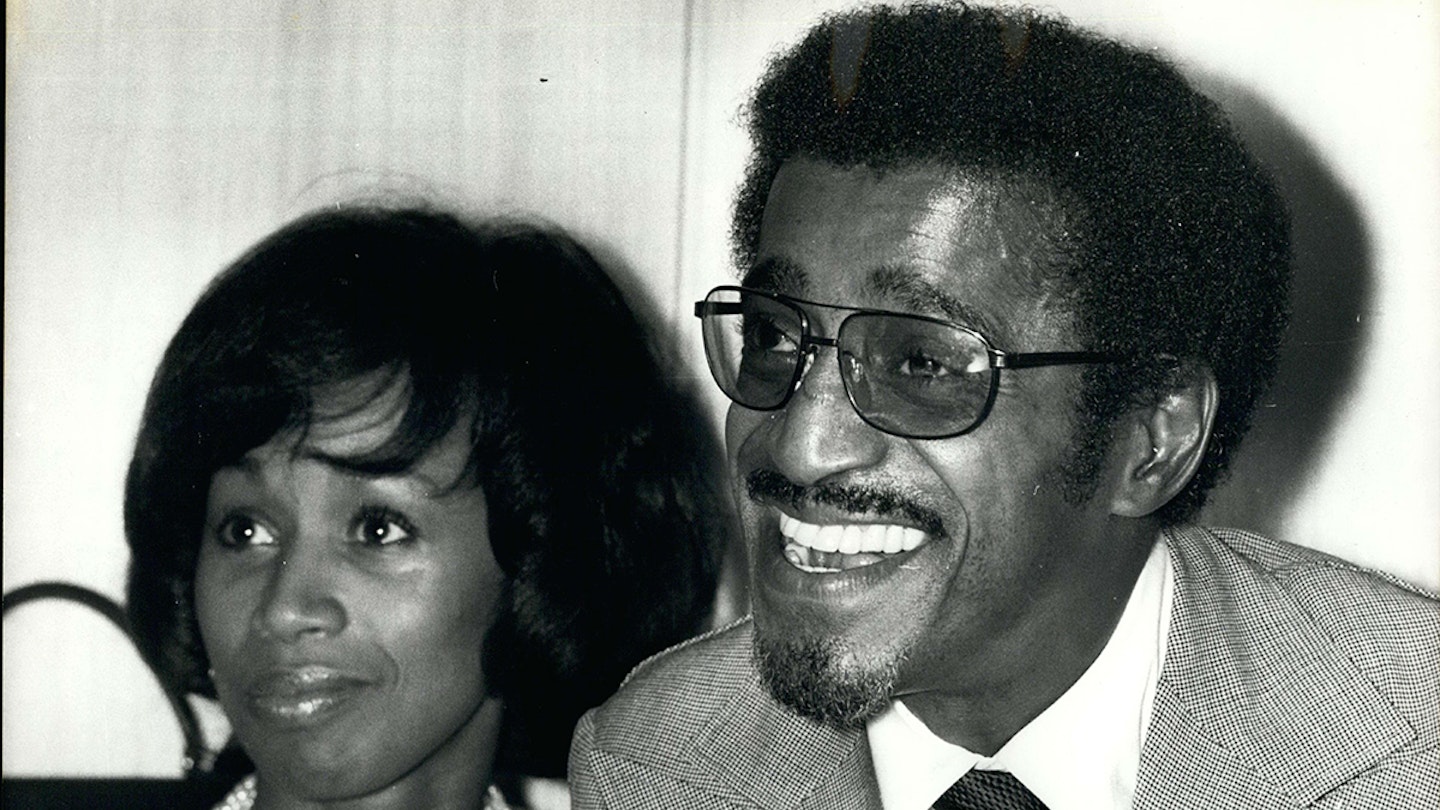10 June, 1972
When Sammy Davis Jr. played a seven-week season at London’s Prince Of Wales Theatre in 1961, the programme for the show carried the acknowledgement: “Sammy Davis Jr. wishes to thank Anthony Newley and Leslie Bricusse for giving him special permission to perform songs from Stop The World I Want To Get Off”. Referring to the songwriting duo’s hit musical then running at the Queen’s in Shaftesbury Avenue, it marked Sammy as a fervent admirer. “Bricusse and Newley write my kind of songs,” he would later claim.
But this certainly was not the case when he recorded the duo’s The Candy Man over a decade later – despite it giving him the biggest hit of his career, starting a two-week stay atop the US chart on June 10.
The saga began out of turmoil. When Sammy’s contract with Reprise hit the rocks in 1970, his manager, Sy Marsh, opted for a deal with Motown Records. He contacted Berry Gordy and enthused: ”Wouldn’t it be great to announce that the world’s greatest record producer, who’s black, has signed the world’s greatest entertainer, Sammy Davis Jr, who’s also black?”
Berry Gordy screamed his delight down the phone. He was keen to offer a contract, and even promised Davis his own spin-off label, Ecology. But Sammy’s debut Motown album would prove to be a disaster. Fashioned from tracks made while the singer was still at Reprise, it was titled Something For Everybody. In truth, it pleased no one. An attempt was made to mould something more in keeping with the Motown image. Marvin Gaye was brought in to produce some tracks, and an album recorded live at Carnegie Hall was completed. But Berry had cooled on his dealings with Davis and nothing was released. As far as a record label was concerned, Sammy was out in the cold again.
Enter MGM executive Mike Curb. He’d persuaded Isaac Hayes to write the hit vocal version of the Shaft theme, he told Davis. If Sammy moved to MGM Records, the song could be the basis for a chart album. But first he asked Sammy to add a vocal to Bricusse and Newley’s The Candy Man, which Curb had earlier recorded with his Mike Curb Congregation. With the original backing tracks available, all Sammy had to do was provide a fresh, more vibrant, vocal top-line.
“This record is going straight into the toilet.”
Sammy Davis Jr
The singer disliked the song, dubbing it “too Julie Andrews”, and even Anthony Newley had doubts about its appeal. Sung in the film Willy Wonka And The Chocolate Factory by a candy-store owner, played by Aubrey Woods, Newley was dismayed at Woods’ performance and even offered to play the role himself if producers Stan Margulies and David Wolper would reshoot the scene. When Sammy eventually agreed to record The Candy Man, he rushed through it in just two takes before heading to Vietnam to entertain the troops. “This record is going straight into the toilet. Not just around the rim but into the bowl, and it may just pull my whole career down with it,” he complained.
The Hip-At-Heart Mistakenly Thought It Was About Dope-Pedalling...
However, the single was released on March 11 and Curb breathed a sigh of relief when it began getting airplay on an array of easy-listening radio stations. It was no overnight hit, the clamber up the chart proving slothful but relentless. Children and housewives loved it, and even the hip-at-heart eventually dubbed it cool, thanks to the belief in some quarters that the song was really about dope peddling. When The Candy Man eventually made it to the top, even Sammy Davis managed a modicum of appreciation for its worth. After all, it had earned him around half-a-million dollars for hardly any vocal effort and also ensured that the first MGM album, Sammy Davis Jr. Now, would be his biggest-selling album since 1955’s Just For Lovers. Even so, he later said: “If I had my way I wouldn’t listen to Candy Man, as big as that record was for me.”
Sammy moved on but continued to touch base with the songs of Newley & Bricusse. In 1978, Davis took a revival of Stop The World I Want To Get Off on tour in the States, with Sammy playing Anthony Newley’s lead role of Littlechap. But Davis’s last hit, released in 1984, came from an unlikely source. Titled Hello Detroit, the single climbed to the top of the charts in Belgium. And it appeared on the Motown label, boasting a Gene Page arrangement of a song credited to writers Willie Hutch and Berry Gordy.
